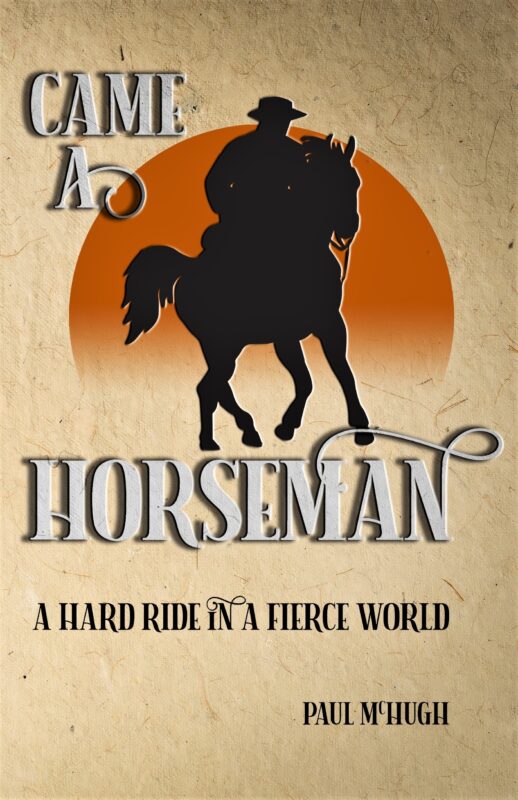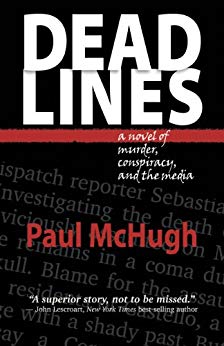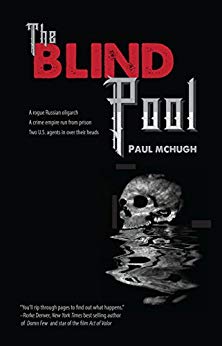
While a mere prat, a lad of 23 tender years, I chose to accept Lord Buckley as my personal savior.
I felt inspired to do so by a miracle that Lord Buckley performed for me on a night that came years after he’d shuffled off this mortal coil—a feat that proved beyond any doubt his saintly abilities.
You see, the man cured me of a speech impediment.
This was the nature of my blockage: I thought too much and far too intently, which turned me rather tongue-tied, and thus I spoke too little. Consequently, I didn’t tend to shine to any notable degree at parties. The syndrome often rendered me mute amid ordinary conversation. Indeed, I could squeeze out only fitful gleams of self-revelation during human contacts of any type.
THE POWER BEHIND THE THROWN

“Lord Who?” one might say. And it’s a fact that the renown of Richard Myrle Buckley has pendulumned through quite a few surges and ebbs, ever since he first trod a stage, ate up its scenery, ripped down the curtains, then kicked out the footlights.
To commence your initiation, allow me to summarize the man thusly: Lord Buckley was the pre-eminent jazz-beat comedian of his era, which extended from the Great Depression through the Great Repression (by which I mean, the 1950s in America.)
He touched the lives and jolted the minds of figures from jazz greats Charlie Parker and Dizzy Gillespie, to rockers like Frank Zappa and George Harrison, as well as comics such as Jonathan Winters and Robin Williams. Study the Lord’s material however briefly, and his gravitational influence upon their antics instantly begins to grow clear.

At the time I fell under the spell of this uniquely mad rapper, I was living in a treehouse on a goat ranch in a wooded valley near Novato, California.
My companions at this miniscule commune—I mean, other than the goats—were Mary, the shepherd (also adept at herding chickens) as well as a pair of hippy jewelers, Stan and Helen, who dwelt in a gypsy chalet they’d built on the back of a flatbed truck.
COMMUNION AT A COMMUNE
We all shared the main ranch house for various functions. One such was Jazz Night, which happened on Tuesdays. These eventides featured an array of guests toting in their favored platters to spin. We wrapped our ears around the offerings whilst we puffed on pipes of bud and sipped from snifters of B&B.

One evening, Rudy, a carpenter from San Francisco, arrived with an odd yet intriguing album. Its cover featured a large color photograph of a bug-eyed older man with an aristocrat’s waxed mustache. He also wore a pith helmet clapped upon his balding head at a rakish angle.
The first cut Rudy played was “The Gasser”—a high-speed madcap rendition of the eight-year trek of marooned Spanish explorer Alvar Nuñez Cabeza de Vaca across North America in the early 16th Century. Alvar’s huge adventure was compressed into four minutes of multi-layered, jazzy lingo. Memorable supporting characters, treacherous landscapes and pivotal events got erected and erased in seconds, accompanied by sound effects ranging from the avid buzz of swamp bugs to ripe bursts of flatulence. The whole narrative built to a crescendo wherein Alvar summarized for the Spanish crown a marvelous force that he’s managed to acquire amid the daunting travails of his travels.

“Your majesty, I have discovered, on this expedition, there is a great power within. Which when used in purity, and immaculate harmony, can cure, and heal, and cause miracles. And when you use it? It spreads like a magic garden. And when you do not use it? It recedes from you. Alvar Nuñez Cabeza de Vaca—the Gasser!—fifteen hundred and leapin’ ten.”
Mesmerized, I immediately begged Rudy to spin his disc again. I felt like I’d just heard a single instrument simultaneously play all parts of a symphony. I imagined, if I could ever manage to command even a tenth of the vocal mastery of Lord Buckley, my chances of being able to unlock my mouth and speak my mind would vastly improve.
GHOST WRITERS IN THE SKY
Rudy took heed of the depth of my fascination. Before he left, he ceremoniously awarded me that album. And it was—almost literally—a bequest. Two months later, Rudy fell dead due to a fabulously aggressive kind of brain cancer.
Meanwhile time, for the rest of us, clomped onward.
Regular readers of this newsletter know I spent formative years in the lovely artistic community of Mendocino. It’s the tiny pad from which I launched my entire careening writing career. Besides applying myself with feverish diligence to earning a living via my scribbles, I also dabbled in a lot of other arty pursuits, such as choral singing and acting in community theater.
I was far from alone in my full immersion in a creative lifestyle. This coastal burg had drawn free spirits and unusual characters for decades. Among them were a few impressively bright individuals who had not only known Lord Buckley personally, but even participated in his Royal Court.
GREAT BUCKLEY’S BEGATTING
To explain that phenomenon to you, I need to sketch out Buckley’s bio. He was born in 1906, partly of Native American ancestry, in the Gold Rush village of Tuolumne up in the Sierran foothills. He and his sister used to dance and sing on street corners for coins tossed by passing cowboys. His first known job was working as a high climber for a logging company—by far the riskiest job in one of the world’s most dangerous professions. This awarded him a barrel-chested physique and a hearty constitution that carried him through many subsequent decades of vigorous tobacco, alcohol and drug use.

He roamed the West during the Depression doing hard labor of various types. But he found his true métier in that sort of showbiz improv he’d once tasted as a kid. Hey, it certainly beat groveling in grit and spouting geysers of sweat for a living. He prospered as an impresario at marathon dances, tent shows, vaudeville halls and the like.
He wound up in 30s Chicago as a favorite of Mob figures who loved his ability to tease and mess with the squares. “He was the only man who could make me laugh,” Al Capone supposedly said (according to a much later newspaper story). In any event, this dark star of a gangster set up the arriviste comic with his very own club, dubbed Chez Buckley.
But then a mystic conversion occurred. One of Buckley’s buddies bought up relics of a bankrupt circus; he went with this pal to tour the fruits of the auction. In a trunk, Buckley discovered a purple drape, adorned with sequins and huge glass gems—the sort of thing that might be tossed on the head or back of a circus elephant. Buckley dragged it over his own shoulders and paraded toward a mirror, where he stood for a moment, entranced. Then he bowed to his own spectacularly clownish image. “Your Majesty…” he murmured.
COURT AND SPARK

And that was the birth of the Royal Court. He quit the Mob, the club and Chicago, and went out on continuous tour for thirty years. His sheer audacity, inventiveness and charisma drew to his side an ever-changing entourage that wished to bask in the glow while figuring out the secrets of Buckley’s dynamic style and presence. These followers naturally got awarded titles too, Squire Rupert, Baron Bob, Prince Hair Head, Lady Water Lily, and so on and so forth.
The national tour only settled briefly, like a butterfly on a bloom, at ramshackle HQ’s that also bore titles, such as the Crackerbox Palace in LA and the Mattress Ranch in Vegas. Buckley flirted with stardom, appearing on TV in the primetime shows of Groucho Marx and Ed Sullivan, but he considered no venue too large or too small. All that mattered was that there would be some people in an audience whose minds Buckley could charm, astonish, and warp.
“He would play the club that stayed open long after all the other clubs in a city were closed,” Bob Treadwell told me. Bob was a Mendocino musician who had played saxophone in a backup band for Buckley and also served as chauffeur for the Royal Court. “Other performers in the area would come to dig him after their own gigs were done.”
EASY COME, EASY GLOW
In any case, whatever money Buckley made sieved through his fingers like water. Or as one acquaintance described it, “To know him was to have him owe you. He thought nothing of putting the touch on somebody for a hundred bucks, then he’d turn around and take a whole roomful of people out to dinner.”

“I loved the man and I loved the artist, too,” said Lady Mary Buckley—his sixth wife.
“I was just happy that he passed my way because he looked at life differently than anyone else. We always ate well and we were always warm and had shelter. We lived in palaces and we lived in tiny places… It never seemed to make any difference. We were happy together.”
However, Treadwell told me a darker side of the Royal Court could loom. Buckley used bizarre ways of shaking up his entourage psychologically, so he could bind them tighter to his will. Some of his methods were like those of a cult leader. For instance, members were taught to scan live audiences for impressed female attendees, then escort them to Buckley’s dressing room.

Treadwell said that he both worshipped Buckley and was terrified of him. What made him stick around was his desire to see what highly unlikely event might occur next.

He did enjoy stunts like driving his lordship through the streets of San Anselmo on a bus with a life-size metal sculpture welded on top that bore the theme and title of, “Kierkegaard on His Horse.” Buckley rode up there on the roof, just behind Kierkegaard, using blasts of stentorian diction to exhort folks on the sidewalks to attend his next show. Treadwell got his kicks from observing startled and incredulous looks on pedestrian faces.
DEEP KNEE BENDS UNEEDED
Oddly enough, I think this last set of revelations was what finally let me tiptoe toward the lofty realm of Buckley’s performance level. Yes, he was a rare talent, yet he was also a flawed human being. Because of that, I did not need to treat the great man as if I were a mere simpering acolyte. Aspects of his magic might fall well within my grasp, since God only knew, I bore my own thick brew of talents and shortcomings.

I began to memorize and rehearse a half-dozen pieces of Lord Buckley material in order to mount a one-man show. Since there were no transcripts available at that time (and the cornucopia of our current online resources lay far, far off in our future) I had to listen carefully and write rapidly as I spun through my curated collection of Buckley records.
It was a lengthy and painstaking process; I had to raise and lower the phonograph needle an uncountable number of times and strove to do so whilst inflicting nary a scratch.
(Now there’s a frothy soap bubble of temps perdu for you Millennials…)
Next, I decided I didn’t really want to put on a one-man act. Something about doing so seemed too grandiose, too solipsistic. Maybe Buckley had insisted on being seen not only as lord but also as master, perhaps he had used and abused the Royal Court, but a basic fact remained that all of his live shows were collective enterprises. So, I figured mine should proceed that way as well.

I approached Gordon Black, a Mendocino DJ with a sonorous baritone, and Bill Zacha, an accomplished artist who’d truly put Mendo on the map as an art colony many years before I’d reached town.

Zacha’s splendid bass voice sounded as if it had been marinated in tobacco smoke and whiskey, just like Buckley’s. Both were intrigued by the project and both told me yes. They proceeded to pluck their own material from the vines of other literary figures.
THE GREASEPAINT ROARS
For our venue, I asked Margaret Fox of the Café Beaujolais to provide her bistro’s main space and tables on a night when the place was normally closed, then devise a reasonable price that would permit gourmet appetizers and two glasses of wine per customer. For a show I chose to call, “Three Voices,” I hired Very Odd Bob Avery to design and print handbills and posters. After they went up, our gig sold out in a week.
My smartest bit of prep was asking Linda Pack, an experienced local director, to observe my rehearsal and provide me with notes. Among them, she said this: “If you build an air castle, you have to live in it.” The meaning of this note was that when you sculpt space with your gestures as a mime does, you need to remember where you sketched the relative locations of stuff, such as a door or a window—or, in the case of my Buckley material, where you hung the jaw of a whale.
Then it was showtime.

Black and Zacha did their things, warming up the room quite nicely. Then, I went on in pajama bottoms, a blazer, a bowtie and a pith helmet, opening my act with “The Gasser” (of course), followed by “Scrooge,” “The Nazz,” “God’s Own Drunk,” “My Own Railroad” and “Jonah and the Whale.” (However, “The Bad-Rapping of the Marquis de Sade,” I saved for a different venue on a Halloween night a month later.)
I felt serene and confident. I had my gestures, sound effects, pacing and timing all down to an nth degree. Our show went off with nary a hitch, and the house was duly brought down. A guy in the audience from UC Santa Cruz came up afterward to ask me if I’d please repeat my show at a coffee house on his campus. I thanked him profusely for the compliment, but I refused. On this one night, I’d accomplished my aim, and in the words of Lord Buckley, only wished now to knock a golden spike in an invisible wall at the apogee of my climb up it.
THE GOOD LORD’S LEGACY
Afterwards, I never again experienced any problem at all with public speaking, whatever the forum, and regardless of the topic at hand or the size of the audience. You see, I now knew for sure that I’d broken through the barrier of my own reticence.


Afterwards, Bill Zacha either made by himself or caused to be made by another artist some tiny, elegant, memorial vases, each with the words, “Three Voices,” incised in the base. He gave one to Gordon and one to me. That charming little vase now sits on my desk right beside my keyboard. And whenever my gaze happens to light upon it, I smile.
Afterwards, I often mulled over the essence of that show, and what I’d gained from the experience. The primary blessing or bounty that Lord Buckley disseminated was a rare spiritual substance: Permission. Specifically, the Permission to be different, to be potent, to be creative, to outrage, to bust up norms, to speak in a way that was fresh and new—simultaneously frank, personal, and universal. What made him such a charismatic figure was that he not only hosed himself down lavishly with Permission; he was willing to drench anyone within earshot.
Lord Buckley commonly finished up his shows with statements such as this: “My lords and ladies, the true flowers of life are not merely the flowers in the field. Among the most brilliant flowers of this world are people—and it is a most precious pleasure to have temporarily strolled in your garden.”









